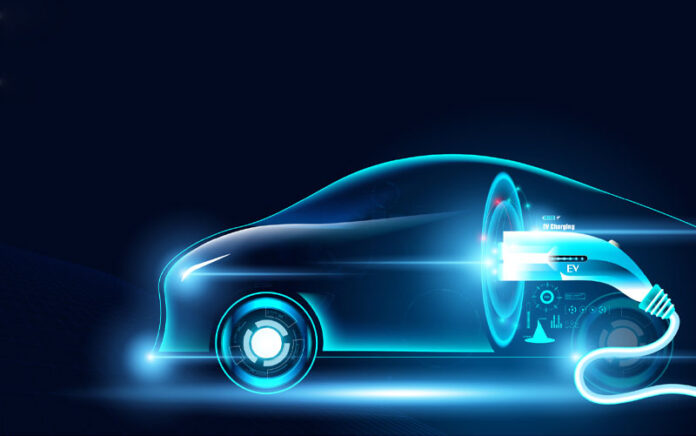Welcome to the comprehensive guide on the future of electric vehicles (EVs). In this article, we will embark on an exciting journey to explore the rapid advancements and transformative potential of electric vehicles.
Buckle up and get ready to discover how EVs are reshaping the automotive industry and paving the way for a greener and more sustainable future.
The Electric Revolution Begins
Rise of Electric Vehicles
Electric vehicles have come a long way since their humble beginnings. With advancements in technology, EVs have gained significant popularity and acceptance in recent years. The accelerated growth of the electric vehicle market can be attributed to several factors, such as increasing environmental concerns, government incentives, and improvements in battery technology.
Environmental Benefits
One of the key driving forces behind the rise of electric vehicles is their positive impact on the environment. Unlike traditional gasoline-powered vehicles, EVs produce zero tailpipe emissions, reducing air pollution and greenhouse gas emissions. By transitioning to electric vehicles, we can significantly reduce our carbon footprint and combat climate change.
Technological Advancements
The rapid progress in battery technology has been a game-changer for electric vehicles. Lithium-ion batteries, which power most EVs, have become more efficient, affordable, and capable of providing longer driving ranges. Moreover, advancements in charging infrastructure have addressed the issue of range anxiety, making EVs a practical and convenient choice for daily commuting and long-distance travel.
The Electric Vehicle Landscape
Types of Electric Vehicles
Electric vehicles come in different forms to cater to diverse needs and preferences. Let’s explore the three main types of EVs:
- Battery Electric Vehicles (BEVs): These vehicles run solely on electricity and are powered by rechargeable batteries. BEVs have no internal combustion engine and produce zero tailpipe emissions.
- Plug-in Hybrid Electric Vehicles (PHEVs): PHEVs combine an internal combustion engine with an electric motor and rechargeable batteries. They can be charged through an external power source and offer both electric and gasoline-powered driving modes.
- Hybrid Electric Vehicles (HEVs): HEVs utilize a combination of an internal combustion engine and an electric motor. Unlike PHEVs, HEVs cannot be plugged into an external power source and rely on regenerative braking and the engine to recharge their batteries.
The Benefits of Electric Vehicles
Electric vehicles offer a multitude of benefits that make them an attractive choice for consumers:
- Lower Operating Costs: EVs have lower operating costs compared to gasoline-powered vehicles. Electricity is generally cheaper than gasoline, and EVs require less maintenance due to fewer moving parts.
- Sustainability: By switching to electric vehicles, we can contribute to a cleaner and greener future. EVs help reduce dependence on fossil fuels and decrease greenhouse gas emissions.
- Silent and Smooth Ride: Electric motors provide a quiet and smooth driving experience. Say goodbye to noisy engines and embrace the tranquility of electric propulsion.
- Government Incentives: Many governments around the world offer incentives and subsidies to promote the adoption of electric vehicles. These incentives can include tax credits,rebates, and access to carpool lanes, making EVs more affordable and appealing.
Overcoming Challenges
While electric vehicles have made significant strides, there are still challenges that need to be addressed for widespread adoption:
- Charging Infrastructure: The availability of a robust charging infrastructure is crucial for the success of electric vehicles. Efforts are underway to expand charging networks and establish fast-charging stations to alleviate concerns about range anxiety.
- Battery Technology: Although battery technology has improved, further advancements are needed to enhance energy storage capacity, reduce charging time, and lower costs. Research and development in this field are actively ongoing.
- Range Anxiety: Range anxiety, the fear of running out of battery power during a journey, has been a concern for potential EV owners. However, with the expansion of charging infrastructure and the development of batteries with longer ranges, range anxiety is gradually diminishing.
The Road Ahead: Future Trends and Innovations
Autonomous Electric Vehicles
The convergence of electric vehicles and autonomous driving technology holds immense potential for the future. Autonomous electric vehicles (AEVs) have the power to revolutionize transportation by offering enhanced safety, improved traffic flow, and increased accessibility. Imagine a world where you can sit back, relax, and let your electric vehicle navigate the roads autonomously.
Vehicle-to-Grid Integration
Vehicle-to-Grid (V2G) technology allows electric vehicles to not only consume electricity but also supply it back to the grid when needed. This bidirectional flow of energy has the potential to create a more balanced and resilient electrical grid. With V2G integration, EVs can serve as mobile energy storage units, contributing to load management, grid stability, and renewable energy integration.
Solid-State Batteries
Solid-state batteries are being touted as the next big breakthrough in battery technology. These batteries offer improved energy density, faster charging times, enhanced safety, and longer lifespan compared to traditional lithium-ion batteries. Once commercially viable, solid-state batteries could further accelerate the adoption of electric vehicles and address some of the current limitations.
Electrification of Commercial Fleets
The electrification of commercial fleets, including delivery vehicles, buses, and taxis, is gaining momentum. Fleet operators recognize the economic and environmental benefits of electric vehicles, such as reduced fuel costs and lower emissions. Large-scale deployment of electric fleets can have a significant positive impact on air quality and contribute to the overall electrification of transportation.
Conclusion
The future of electric vehicles is bright and promising. As we embrace the electric revolution, we can look forward to cleaner air, reduced carbon emissions, and a more sustainable transportation system. The rapid advancements in technology, coupled with supportive government policies and changing consumer preferences, are driving the widespread adoption of electric vehicles. So, hop on board and be a part of the electric vehicle movement towards a greener and brighter future.
Remember, the road to a sustainable future begins with a single charge!
List of Benefits of Electric Vehicles:
- Lower Operating Costs
- Sustainability
- Silent and Smooth Ride
- Government Incentives
List of Challenges for Electric Vehicles:
- Charging Infrastructure
- Battery Technology
- Range Anxiety
FAQs
Are electric vehicles more expensive than gasoline-powered vehicles?
While electric vehicles may have a higher upfront cost compared to traditional gasoline-powered vehicles, it’s important to consider the long-term savings. Electric vehicles have lower operating costs due to lower fuel costs and reduced maintenance requirements. Additionally, government incentives and subsidies are often available to help offset the initial purchase price.
How far can electric vehicles travel on a single charge?
The driving range of electric vehicles varies depending on the model and battery capacity. Modern electric vehicles can typically travel anywhere from 100 to 300 miles on a single charge. It’s important to note that advancements in battery technology are continually improving the range of electric vehicles.
How long does it take to charge an electric vehicle?
Charging times for electric vehicles depend on the charging method and the battery capacity. Level 1 charging, which uses a standard household outlet, can take several hours to fully charge an electric vehicle. Level 2 charging stations, commonly found in public places and homes, can charge a vehicle in a shorter timeframe, usually between 4 to 8 hours. Fast-charging stations, or Level 3 charging, can provide an 80% charge in as little as 30 minutes, depending on the vehicle and charger capabilities.
Can I charge an electric vehicle at home?
Yes, it is possible to charge an electric vehicle at home. Most electric vehicle owners install a Level 2 charging station at their residence, which requires a dedicated circuit and a higher voltage outlet. This allows for faster charging times compared to a standard household outlet. It’s recommended to consult with an electrician to ensure proper installation and safety.
What is range anxiety, and how can it be addressed?
Range anxiety refers to the fear or concern of running out of battery power while driving an electric vehicle, especially on longer trips. However, with the expanding charging infrastructure and improvements in battery technology, range anxiety is becoming less of a concern. Electric vehicles with longer driving ranges and the availability of fast-charging stations are addressing this issue and providing more confidence for EV owners.
Are there charging stations available for long-distance travel?
Yes, there is a growing network of charging stations specifically designed for long-distance travel. These fast-charging stations, often referred to as DC fast chargers or Level 3 chargers, are strategically located along major highways and in urban areas. They can provide a significant charge in a short amount of time, allowing electric vehicle owners to undertake long trips with ease. Additionally, various smartphone applications and online platforms help locate charging stations along a chosen route.
How does the environmental impact of electric vehicles compare to gasoline-powered vehicles?
Electric vehicles have a significantly lower environmental impact compared to gasoline-powered vehicles. EVs produce zero tailpipe emissions, reducing air pollution and greenhouse gas emissions. The environmental benefits are even greater when the electricity used to charge electric vehicles comes from renewable energy sources. By transitioning to electric vehicles, we can contribute to mitigating climate change and improving air quality.
Can electric vehicles be charged with renewable energy?
Yes, electric vehicles can be charged with electricity generated from renewable energy sources such as solar or wind power. Many electric vehicle owners choose to install solar panels at their homes, allowing them to charge their vehicles with clean and sustainable energy. This combination of renewable energy and electric vehicles further enhances the environmental benefits of EVs.
Are there government incentives available for purchasing electric vehicles?
Yes, many governments worldwide offer incentives and subsidies to encourage the adoption of electric vehicles. These incentives can include tax credits, rebates, grants, and exemptions from certain fees or taxes. The specific incentives vary depending on the country or region, so it’s advisable to check with local authorities or visit government websites to determine the available incentives in your area.
Are there enough charging stations to support the growing number of electric vehicles?
Efforts are underway to expand the charging infrastructure to support the growing number of electric vehicles. Governments, utility companies, and private entities are investing in the installation of public charging stations in cities, parking lots, workplaces, and along highways.
Additionally, home charging stations are becoming increasingly common, allowing EV owners to conveniently charge their vehicles overnight. While the charging infrastructure continues to evolve, the availability of charging stations is steadily increasing to meet the demand.







